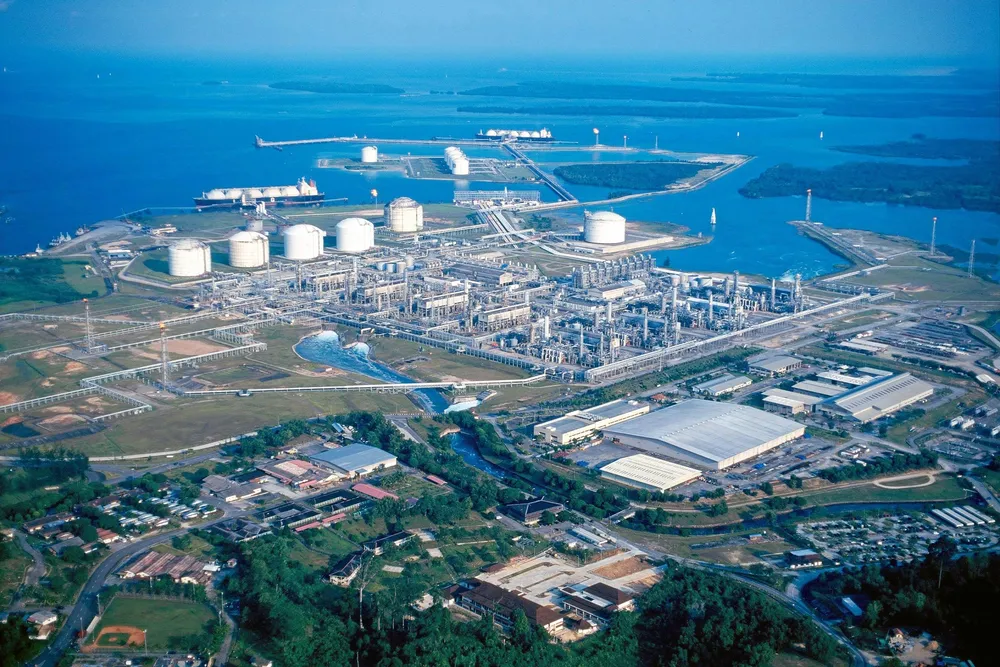Chevron eyes return to Indonesia's upstream sector
US heavyweight 'confirmed' to be coming back, according to SKK Migas head, Djoko Siswanto

US supermajor Chevron is evaluating its return to Indonesia’s upstream sector, less than 20 months after it completed the divestment of its Indonesia Deepwater Development giant gas fields to Eni, according to a leading government official.
The Indonesian oil and gas fraternity was abuzz on Wednesday following a social media message sent by upstream regulator SKK Migas head, Djoko Siswanto.
A translation into English of the post — Upstream has seen the original message in Bahasa Indonesia — reads: “…I just got the information that Chevron Upstream Business {sic] confirmed that it will return to Indonesia to invest in developing oil and gas fields with the potential to beat the Masela block.”
One local energy publication was so excited that it erroneously published a story — which was subsequently taken down — that claimed Chevron was coming on board Inpex’s Masela block.
Informed sources told Upstream that definitely was not the case, with a spokesperson for Japanese operator Inpex simply stating that it was not factual.
But it seems Chevron is considering its E&P return to Indonesia, where for decades it used to have extensive upstream assets including the Rokan production sharing contract onshore Sumatra that hosted the flagship Minas and Duri oilfields, and several PSCs in the Kutei basin offshore East Kalimantan.
“We regularly engage with SKK Migas. However, as per our long-standing policy, we do not discuss the details of these engagements,” a Chevron spokesperson told Upstream.
“We’re definitely seeing renewed interest from global E&P [players] in Indonesia’s exploration space. Chevron, for instance, could be weighing a couple of options either getting involved in joint studies, or possibly picking up a stake in one of the recent discoveries, maybe in the Andaman or Kutei basin,” Prateek Pandey, head of APAC oil and gas research at consultant Rystad Energy, told Upstream.
Pandey said what’s helping to drive this renewed interest is the better gas pricing in the domestic market, plus the fact that a lot of these prospects are already close to liquefied natural gas infrastructure, which he described as “a big plus”.
“It is also worth noting that companies like Chevron and TotalEnergies never fully exited Indonesia, but their previous PSCs simply ran their course. Now, with a broader industry shift toward reprioritising oil and gas investments, Asia is firmly back on the radar for a number of international players,” he added.
Chevron and TotalEnergies exit
US operator Chevron handed over the mature Rokan asset to Indonesia’s national oil and gas company Pertamina after the PSC expired in August 2021.
Earlier, equal partners TotalEnergies and Inpex had to wave goodbye to their key producing Mahakam block offshore East Kalimantan, when that PSC expired at the end of 2017.
Mahakam too was awarded to Pertamina, with both deals being transacted during the tenure of Indonesia’s former president, Joko Widodo, as he moved to give the state player first option on expiring PSCs — albeit not infrequently resulting in a slump in the asset’s production.
Chevron in 2023 completed the closing of its sale of three subsidiaries to Eni, whereby the Italian energy company acquired the producing West Seno field, and undeveloped discoveries including Gendalo, Gehem and Gandang — all in the prolific Kutei basin.
Meanwhile, a source suggested that Djoko’s reference to “beating the Masela block” could be a dig at Inpex to hurry up and take the final investment on its giant Abadi LNG and gas project.
The Indonesian government for years had touted Abadi as coming on stream before the end of this decade. The giant gas field was hoped to be a major contributor towards achieving the government’s earlier stated target of boosting the nation’s output to 1 million barrels per day of oil (including condensate) and 12 billion cubic feet per day of gas by 2030.
(Copyright)